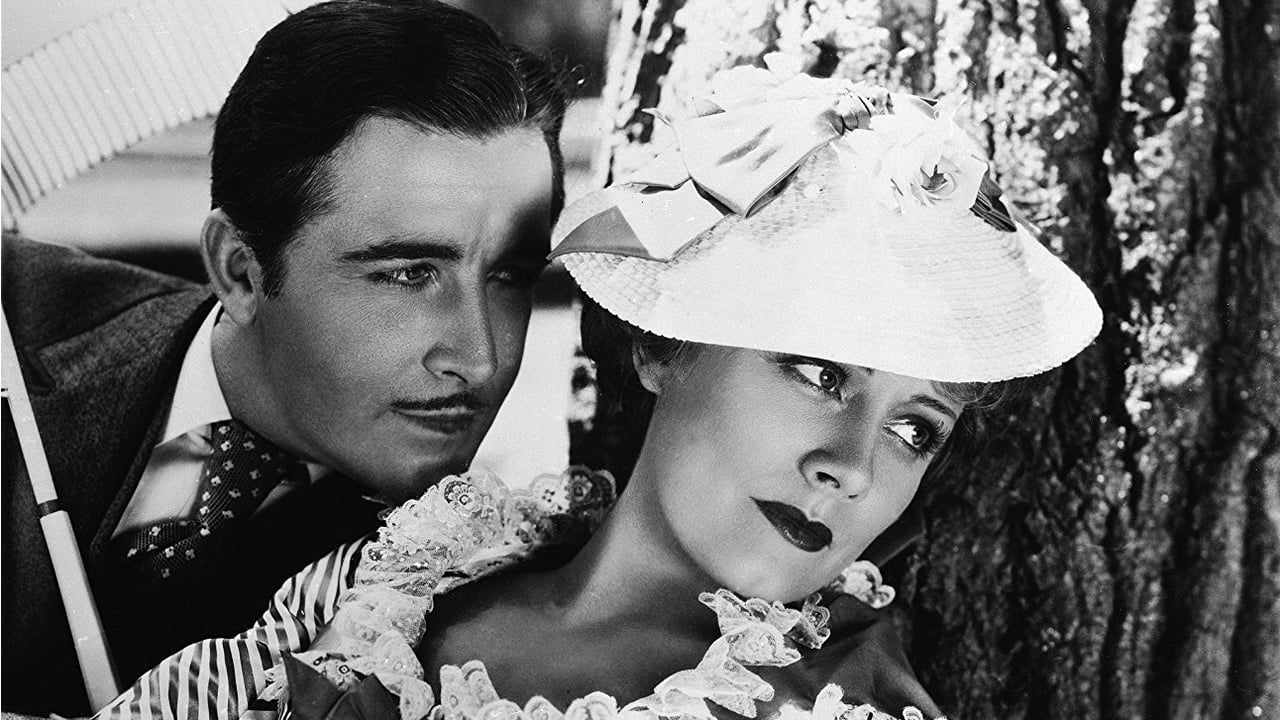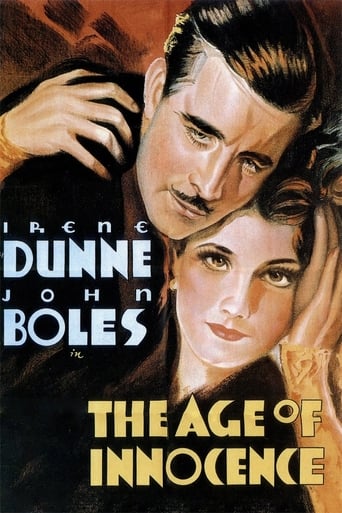

I just watched The Age of Innocence and although it is a good movie, I wish it were made in color. The Ladies costumes were great and Irene Dunn looks amazing. I have one question, did men in the 1870s wear clothing that were styled much later? John Boles' fedora and suits stepped right out of the 1930s.
... View MoreI finally saw this version for the first time this morning on TCM. While I missed the first 15 minutes of it, I have to say the film is in pristine condition. Irene Dunne and the supporting cast is great. The costumes are beautiful. I felt bad about the way Newland and Countess Oleska were not truly honest about how they felt and with themselves. When May (Julie Haydon) asks Newland( John Boles) if he was in love with someone else, this could have been his opportunity to leave and go back to the woman he truly loved. But to lead her on like that was heart-breaking. I also believe that John Boles was miscast. Yes, he was very handsome, but I think that someone like Melvyn Douglas, Paul Muni, Herbert Marshall, or Robert Montgomery would have been better suited for the part. While Julie Haydon did a good job as May, I think Loretta Young, Dorothy Wilson, Jean Parker, or Mary Carlisle would have been better cast. All in all, it was a decent film which lacked passion.
... View MoreThis "Age of Innocence" from 1934, of course, cannot even approach the sumptuous beauty.amazing acting, and rich story-telling of the Martin Scorsese "Age of Innocence" from 1993 starring Daniel Day-Lewis, Winona Ryder, and Michelle Pfeiffer.The 1934 movie stars Irene Dunne as Ellen, John Boles as Newland, and Julie Haydon as May.The story is told in flashback by the elderly Newland. As a young attorney in the late 1800s, he was engaged to May when her cousin Ellen came to visit from Europe. She plans to divorce her husband and is a social outcast, as these things were never done. Newland and Ellen fall in love. Do they defy convention and marry? Or does Newland marry May as promised?Irene Dunne is lovely as Ellen. She was an actress who could do comedy and drama. John Boles was a huge star and not a tremendous actor. That kind of look was considered attractive way back when; today it has gone out of style. There are good performances, but there is no way to watch this film after seeing the Scorsese film. It is studio-made, looks dull, and is dull. This is a story with a great deal of depth that seems untouched here -- lots going on underneath all the gentility, the trap of conventions -- here told as an ordinary story.Helen Westley is wonderful as the cousins' grandmother, as is Laura Hope Crews as Dunne's aunt and May's mother. Lionel Atwill is also on hand as a married man who is a friend of Dunne's, an unacceptable situation.The novel was also adapted into a play, on Broadway starring Katherine Cornell as Ellen and Franchot Tone as Newland.If you haven't seen the stunning Scorsese film, see it.
... View MoreIrene Dunne shines in this fine(one must remember it was the post-code 1930s)adaptation of the Edith Wharton novel, as Countess Ellen Olenska, an american born member of New York's high society, who was raised and married in Europe, far way from that city's strict society conventions, now an outsider in her own family. She returns to New York city because she wants to divorce her polish aristocrat husband, where she falls in love with young lawyer Newland Archer, her cousin's fiancé.John Boles, as usual, is just so-so as Newland Archer, although I must say, that upon watching the movie I felt he was much more effective when impersonating him in his old age. This actor always reminds me of Robert Taylor, because although the latter achieved superstar stardom and had better looks, their acting abilities and inexpressiveness are roughly equivalent. As well, both served as "escorts" in many star vehicles of notable 1930s female stars: Irene Dunne, Barbara Stanwyck, etc.Miss Dunne, an excellent comedienne and dramatic actress, had previously worked with Boles in the 1932 weepie "Back Street", and this film's plot is in the same category. She looks very beautiful indeed in period clothing. Julie Haydon is rightly "controlled" and restrained, as her cousin May.Helen Westley gives the greatest performance among the supporting players, as Old Dowager Mrs. Manson Mingott, both Countess Olenska's and May's understanding and very warm grandmother. Laura Hope Crews is very good as Dunne's stuffy and very concerned aunt (and May's mother), and Lionel Atwill plays an unscrupulous "married man of bad reputation" who befriends Dunne, in spite of the scandal it may cause, in the opinion of her family.Recommended viewing for '30s movie fans.
... View More